- Home
- Melissa de la Cruz
Girls Who Like Boys Who Like Boys Page 27
Girls Who Like Boys Who Like Boys Read online
Page 27
During senior year, I enrolled in Wine Tasting for two consecutive semesters in the French department, by far the best class I ever took in college. For our final exam we had to offer insightful commentary on more than twenty different varietals and blends. After ten or so, I turned to my friend Kristy and said, “I’d like to entertain other options with Evan.”
She suggested that we take a few bottles back to my room and host a private after-party.
A most excellent idea, I thought.
Who knew that three days later I would be telling my mother all about it?
If I were given the opportunity to rewrite a single scene from my life, I would without question choose that night.
A year after coming out to my mom, I returned home for a vacation and found a book on her shelf called A Catholic Mother Looks At the Gay Child. The cover features a silhouette drawing of a mother holding hands with her son, walking toward a towering cross. The sun is setting, and the little boy looks light on his feet. On the back cover, the book’s author tells us, “Ten percent of the population is homosexual. These people are not just numbers on a graph. They go to school, play, and grow up just like everybody else. But when they get to adulthood they are in noman’s land…. Here is a book that gives hope to these lonely, perplexed kids—and their parents.” While the book seemed to be well intentioned, I had not realized just how difficult my coming-out process had been for my mother.
Turning to the first page, I found a note addressed to my mother:
I thought this might help your friend
(the one with the gay son).
My mother had been so terrified to share my sexuality with the world that she created a fictional friend with her situation.
I asked her if the wisdom for Catholics had helped my Jewish mother.
“It validated my concerns,” she said.
Still, she wouldn’t tell any of her friends that I was gay.
Finally, three years later, she told one girlfriend.
This friend didn’t live in Los Angeles, knew none of her other friends, and was dying of cancer.
“It’s not a big deal,” she said, when I asked her why she hadn’t told more people. “I don’t run around telling the world that I’m straight! You want me to protect you from all the prejudices of the world. You want me to be like that waitress mother from Queer as Folk with all the buttons on her vest.”
“You watch Queer as Folk, Mom?”
“I know,” she said. “It’s terrible. I much prefer The L Word.”
Three years after I came out, my mother visited New York for a reading of a play I had written. As she entered the theatre, my mother told me that she was afraid of being assaulted by my “New York army of gay supporters.”
“Everyone in this theatre knows more about you these days than I do,” she said. “I feel like I’m walking into a place with no idea of what to expect. I feel like an intruder.” For a mother who directed all my childhood work, she wasn’t fully prepared for the downtown playwright who was emerging before her eyes.
After the reading, my advisor, Janet, who had become a close friend of mine, invited my parents to her apartment for a drink.
As she opened a bottle of pinot grigio, Janet told my mother, “I have a gay child, too. You know how I found out? It was on the front page of The New York Times. A picture of her in the middle of an ACT UP protest. Could you imagine?”
“Not The New York Times! That’s terrible,” my mother said.
“You’re frustrated,” said Janet. “But your son is gay. What can you do about it?”
My mother took a deep breath, a gulp of wine, and let this question sink in. “Nothing.”
Not long after, she began asking questions:
“Do you go to those bars with the naked men dancing on platforms like in Sex and the City?”
“Who leads when you slow dance?
“Don’t you find Alan Cumming attractive? He’s adorable!”
“Why don’t you date an interior designer? Your apartment is such a mess. Have you seen the one on Queer Eye? He’s a little short and pudgy, but he’s hot!”
Last December, my mother returned to the city for a reading of a new play of mine, one that dealt with explicit gay themes. Janet brought her friend Mark Ravenhill. I dragged my mother across the theatre to introduce her to him.
“This is my mother. She took me to see your play Shopping and Fucking when I was sixteen. We sat together in the front row.”
I realized how this must sound to Mr. Ravenhill, as if I had the most permissive liberal mother in the world. My mother threw up her arms and let out an embarrassed laugh: “How was I supposed to know it was so graphic?”
Did she know that she was fueling the imagination of a gay teen with aspirations of becoming a writer? How was she supposed to know that she was providing me with a dream education?
Two years ago, I sat in New York’s Royale Theatre next to a gay friend who had not spoken to his mother in years, watching a revival of Marsha Norman’s ’night, Mother. In the middle of the performance, I began for the first time to feel like my mother’s torturer. In this play, a full-grown woman, Jessie, tells her mother that she has decided to commit suicide that evening. As she quietly makes final arrangements, she insists that her mother has no say in the matter.
“I have to go in the bedroom and lock the door behind me so they won’t arrest you for killing me,” she tells her mother. “They’ll probably test your hands for gunpowder anyway, but you’ll pass.”
I found myself hating Jessie and experiencing a new sensation at the theatre: guilt. I wanted to call up my mother to apologize for being a difficult gay son who ridiculed her repeatedly for refusing to tell her friends about my sexual identity, who called her homophobic, who played her hysterical voice mails for friends, who forced her to inextricably connect a life-threatening illness with my sexuality, an association that didn’t need further reinforcement.
But when she picked up the phone, all I could say was that I just saw the most incredible play, and she agreed that it was a very powerful piece and began to describe in vivid detail the film version with Sissy Spacek and Anne Bancroft.
I believe my mother has always known, deep in her heart, that I am gay. Taking a gay son to Angels in America, Falsettos, The Dying Gaul, Take Me Out, Shopping and Fucking, The Paris Letter, and drag versions of The Bad Seed and Christmas with the Crawfords are acts of unconditional love. In the quiet moments we shared side by side in those red velvet seats—no matter what was said before or after the lights came up—my mother and I were able to escape into a world of tolerance and mutual understanding.
Recently, she called to tell me about a wonderful documentary she just saw on Logo, the gay network.
“You’re watching Logo now?” I said. “I don’t even watch Logo.”
“Sure, it has wonderful programs. This documentary explained that parents and children are on two different time lines when it comes to the coming-out process. You’ve been dealing with these issues for ten, fifteen years. I’ve only had five years to process all this. And five to seven years is a perfectly normal adjustment period for parents. That’s what they said in the documentary.”
“Well, if that’s what Logo says, then it must be true,” I teased.
As she continued to describe the program, I heard my mother telling me: I’ll come around. Be patient.
We all imagine that fantasy moment when we are finally able to see eye to eye with our parents—when we feel like we are all watching the same show.
We hope this will happen before they die.
I’d like to think that my mother and I are moving toward the beginning of a new act.
Perhaps the cast will be expanded: A boyfriend? A husband? A child?
The house lights will dim.
The curtain will rise.
And a passionate, inspiring, larger-than-life mother will sit onstage discussing Art and Love with her son—a man she has fully prepared for life’
s banquet.
DARLING, I LIKE YOU THAT WAY
Ayelet Waldman
The readers of Salon.com are very worried about my nine-year-old son. They worry that he’s been “betrayed and humiliated” and they worry that in order to please his selfish mother, the poor boy will have to be gay. The source of their collective anxiety is an essay I wrote in 2005 about gay marriage in which I recounted my son’s comment, “I think I might be gay.” Lest you dismiss the hue and cry as more homophobic redstate vitriol, let me assure you that only liberals and the odd libertarian read Salon. The only reason the state legislatures of Alabama and Mississippi don’t ban the site altogether is that, aside from one or two New York English professors forced by the sad state of Ph.D. hiring to relocate to Tuscaloosa or Jackson, no one in the land of Dixie has ever bothered to log on.
No, the worry, the rage, the horror comes from my brethren on the left.
The essay is about my young son’s (seven years old at the time) attitude toward homosexuality. I begin with a story about his best friend, a fifty-nine-year-old lesbian with whom he shares “a passion for the San Francisco Giants, dark chocolate truffles, and New York frankfurters…Other than his dad, Zeke would rather be with Laura than pretty much anybody else, including me.” Zeke has always known about Laura’s sexual orientation, and her loving relationship with her partner is one of the many reasons he was able to speak so un-self-consciously about his own sexual orientation.
In the essay, I talk about the moment when I first introduced the subject of homophobia to my kids, ironically at a moment of joy for all of us who care about the civil rights of gay people. We had always referred to Laura’s partner as her wife, because, as I wrote in the essay, “There seemed no other way to describe that relationship in terms the kids could understand, in a way that would align this romance with the other long-term commitments the children knew—our marriage, those of their grandparents—and distinguish it from more transient ones.” When the mayor of San Francisco began issuing marriage licenses, we celebrated, but we also had to explain that this was the first time gay people were allowed to be legally married in the United States of America. That shocked my son. Zeke believes that you’re supposed to marry the person you love, whoever and whatever that person happens to be.
But what really freaked people out was that I wrote that not only does the prospect of my son being gay not bother me, but I actually hope he might be. The reason I give for wanting a gay son is light-hearted. “How many straight men maintain inappropriately intimate relationships with their mothers? How many shop with them?”
I was taken to task for my biases. One gay reader chided me: “Shopping? Inappropriate relationships with your mother? This is not the 1950s and this type of stereotyping is insulting and one of the reasons it’s still hard to be gay in Bush’s America.” And: “As a gay man, I found these comments to be condescending, out of touch, and quite a bit insulting. Either support gay rights or don’t; but please don’t equate them with some deep desire on the part of gays and lesbians to trash sex-role stereotypes.”
Good points, and ones with which I agree. That’s why I described my stereotypes as “shopworn and musty clichés.”
However, at the risk of incurring yet more wrath, I’m going to go ahead and dive headfirst into the roiling lava pit of bias. While I know and love a few straight men, by and large, the gay men I know are simply more fun. For every straight male friend I have, there are three or four or more gay men with whom I’d rather spend my time. My gay friends dish with more relish and verve. They have a better design sense and are far more willing to discuss the proper placement of a piece of furniture than any straight men I know. For a long time, being part of the gay community mandated a familiarity with a certain kind of culture. You listened to opera, you went to the theater, you wore something fabulous to a Madonna concert. This may be a function of my generation—do nineteen-year-old gay men even know who Barbra Streisand or Maria Callas is?—but I have never met a straight man, other than my husband, who would comb the antique shops of Venice with me, searching tirelessly for the perfect tasseled pillow. As far as my joke about close relationships with mothers, I’m terrified at the prospect of daughters-in-law. With good reason: I am one myself. I hope my sons are gay so that they will bring home lovely young men who will redecorate my kitchen (another wretched stereotype!), rather than nubile young girls who will cast a disparaging and dismissive eye on my crow’s feet and thick waist. Zeke, his lover, and I would be a giggling and gossiping threesome, shopping for Jimmy Choos and beaded Victorian lamps (and another!) before the boys head off to a circuit party. (Now that’s just real life.) In the other, more likely but far less appealing scenario, Zeke and some young woman named Hannah or Emma will screen their calls and roll their eyes as I leave increasingly frantic voice mail messages. She will perfect an impression of me, complete with nasal whine and pinched lips, and he will wince at the droll accuracy and drag her off to the bedroom while my forlorn voice begs to the empty air, “Please, darling, give your mother a call, just so that I know you’re all right.”
Enough of the stereotypes. I do know some gay men whose ears aren’t pierced and who’ve never evinced much interest in the Divine Miss M. They wear conservative suits (Brooks Brothers and J. Press rather than Paul Smith and Zegna); they are soccer dads and computer executives who take their partners to auto shows. But even these men have a little something extra, if only the sensitivity wrought by dealing with oppression and discrimination throughout their lives.
From the time I was a teenager, and probably before, I’ve been drawn to men like that. I was a geeky, unpopular girl. I lived in a wealthy town but my family didn’t have much money; still, much of my unpopularity may have had less to do with my parents’ inability to buy me rainbow-colored Izod shirts and Fair Isle sweaters and more to do with my moods. I wasn’t necessarily a happy kid; in retrospect, I probably showed some symptoms of the bipolar disorder with which I was ultimately diagnosed. Outsiders flock together, perhaps because no one else will have them, perhaps because they know each other’s pain. For whatever reason, among the few friends I had were scrawny boys I met in drama class and on the gym bleachers holding excuse notes as elaborate as mine. I always felt most comfortable in the company of these boys with uneasy smiles who spent most of their days scrambling after the books the cool boys dumped from their arms or running away from games of “smear the queer.” Not all of those boys were gay, of course. Some turned into sensitive men, like my husband. But many were.
Soon enough, I had a better reason to like those boys. Like a lot of girls who feel insecure and unattractive, I ended up with a reputation as a slut. My behavior came to justify the initially unearned slur. But with my fellow theater rats, I never had to worry. They wouldn’t flirt with me, fuck me, and then tell their friends. It went without saying that I wouldn’t end up splayed out in the backseat of a car. We could be affectionate, even physically, without the specter of sex and its humiliating ramifications.
As an adult, these relationships continue. A number of years ago, my husband and I met a gay man who had written a brilliant memoir. After a few hours of enchanting conversation over delicious food, we invited our new friend to join us on a trip to Italy. For two weeks. I cannot imagine a universe in which we’d have dinner with a straight guy and immediately invite him to share our vacation rental. Our friend was every bit the marvelous companion we knew he’d be (note prior reference to shopping for tasseled pillows).
I have a remarkably patient gay friend who once accompanied me on a research expedition to one of San Francisco’s most notorious strip clubs (for a scene in one of my novels, I swear to God). I was shy about going alone, but I was also embarrassed at the prospect of looking up some woman’s vagina in the company of a straight man—these women are so naked that if I’d had a Q-tip and a speculum I could have given a dozen Pap smears. I wanted to see what the women did to the men in these kinds of places, but I didn’t want t
o be distracted by my companion popping a massive boner. Unfortunately it turns out that friction knows no sexual orientation. I had to cut my friend off after three lap dances.
My affinity for gay men is probably one of the reasons I fell so hard for my husband. My husband wrote a book that can be considered a gay coming-out novel, in part inspired by experience. Though he’s straight, he, like me, loves gay men and enjoys their company, and he is a tiny bit of a sissy himself. For example, he was the one who decided to see The Devil Wears Prada, even though it was the opening weekend of Superman. He loves to shop; most of my nicest clothes and all of my jewelry were gifts from him. He appreciates music and art, more, in fact, than I do.
I want my sons to be like their father. They may be straight and unusual, like he is, but if they’re gay there’s a hell of a lot better chance they’ll turn out like their dad.
My own prejudice was on full view when I wrote in Salon about the idea of my daughters being lesbians. “Would a lesbian daughter give me grief about shaving my legs? Would her girlfriend the Gestalt therapist bring bulgur salad to family potlucks?” What that stereotype and the others are about, obviously, is prejudice and insecurity. “The stereotypical gay woman makes me insecure, conscious of my failings as a feminist. I make less money than my husband; I rely on him for simple home repairs; I care too much about what I look like; I once got a Brazilian bikini wax.”
But the critique of these admitted biases wasn’t the real issue people, even gay people, had with the essay. Underlying all this outrage, I’m convinced, is a lonely and sad self-hatred.
Those people who are aghast that I have exposed my son to ridicule believe that being gay or just musing on your sexuality will necessarily make you the butt of other children’s bullying. That is probably true in much of what someone described as “Bush Country.” But my family lives in Berkeley. There are many gay families in my children’s school. The school shows movies like Daddy and Papa and the high schools all have Gay-Straight Alliances. My children’s world, thank God, is nearly devoid of homophobia. Sounds bucolic, doesn’t it? It is, and it’s one of the main reasons we live here when we could live so much less expensively somewhere else. Bullying may have been the sad experience of many gay men, but I think things are changing for kids nowadays. At least two-thirds of high school students support gay marriage, according to the Hamilton College National Youth Opinion Poll. This generational shift in favor of gay rights has been consistent over the years, and it explains why the religious right is desperately trying to amend the Constitution: They only have so much time before our more open-minded children are old enough to vote.

 Gates of Paradise
Gates of Paradise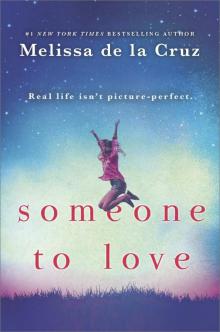 Someone to Love
Someone to Love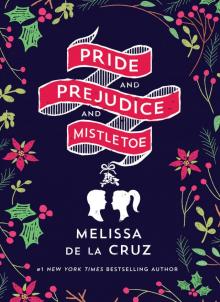 Pride and Prejudice and Mistletoe
Pride and Prejudice and Mistletoe Serpent's Kiss
Serpent's Kiss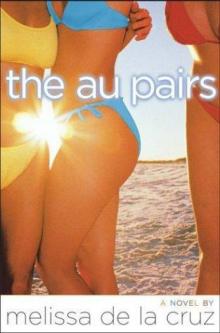 The Au Pairs
The Au Pairs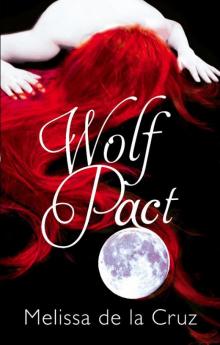 Wolf Pact
Wolf Pact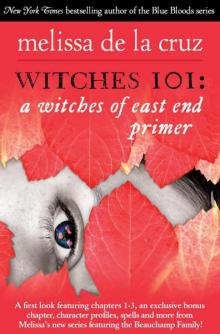 Witches 101: A Witches of East End Primer
Witches 101: A Witches of East End Primer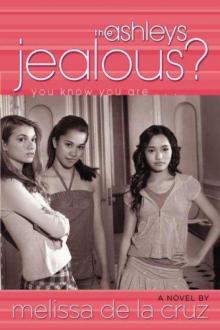 Jealous?
Jealous?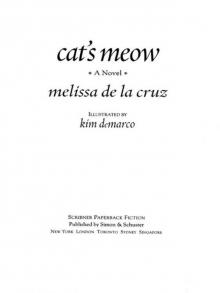 Cat's Meow
Cat's Meow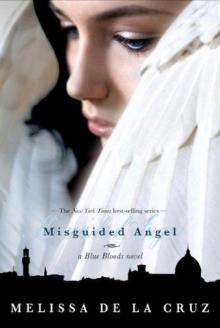 Misguided Angel
Misguided Angel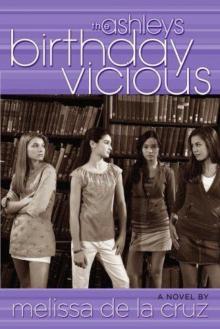 Birthday Vicious
Birthday Vicious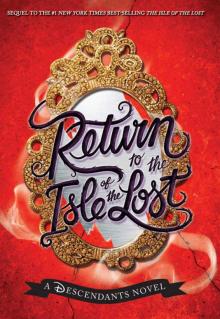 Return to the Isle of the Lost
Return to the Isle of the Lost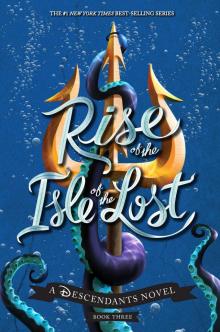 Rise of the Isle of the Lost
Rise of the Isle of the Lost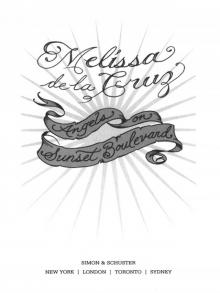 Angels on Sunset Boulevard
Angels on Sunset Boulevard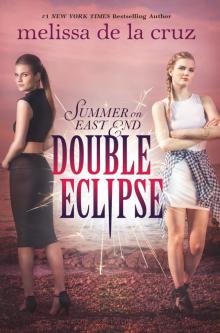 Double Eclipse
Double Eclipse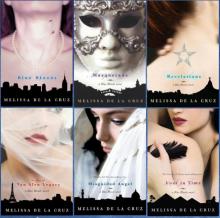 Blue Bloods
Blue Bloods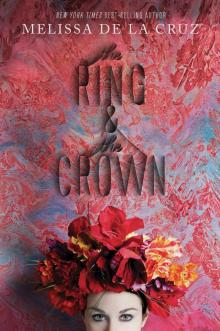 The Ring and the Crown
The Ring and the Crown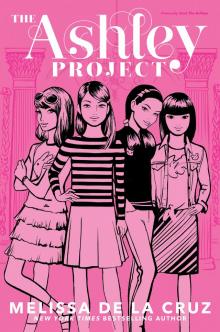 The Ashleys
The Ashleys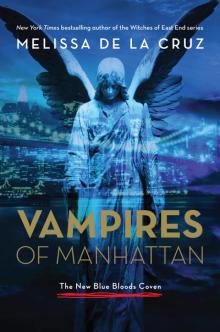 Les vampires de Manhattan
Les vampires de Manhattan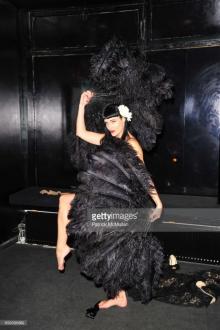 The Van Alen Legacy
The Van Alen Legacy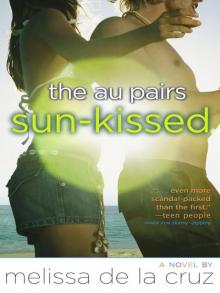 Sun-Kissed
Sun-Kissed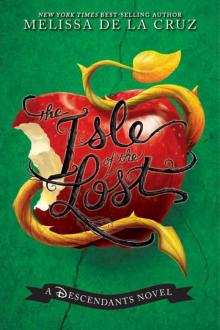 The Isle of the Lost
The Isle of the Lost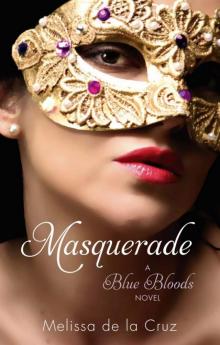 Masquerade
Masquerade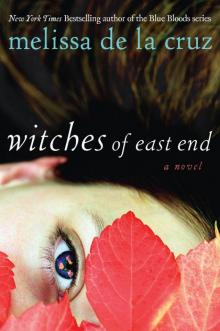 Witches of East End
Witches of East End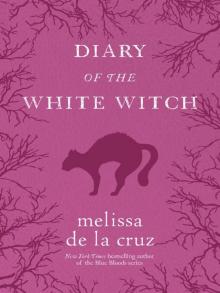 Diary of the White Witch
Diary of the White Witch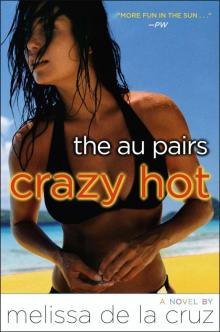 Crazy Hot
Crazy Hot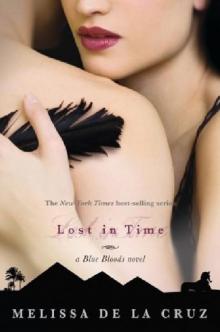 Lost in Time
Lost in Time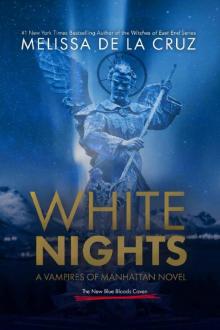 White Nights: A Vampires of Manhattan Novel
White Nights: A Vampires of Manhattan Novel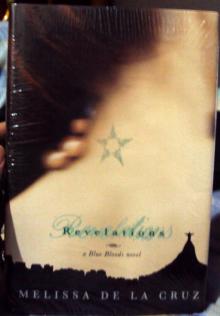 Revelations
Revelations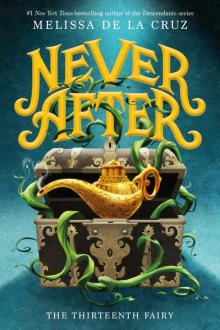 The Thirteenth Fairy
The Thirteenth Fairy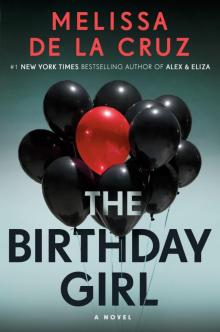 The Birthday Girl
The Birthday Girl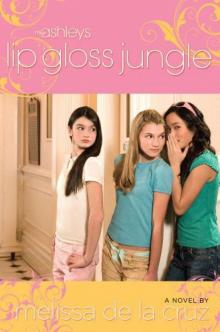 Lip Gloss Jungle
Lip Gloss Jungle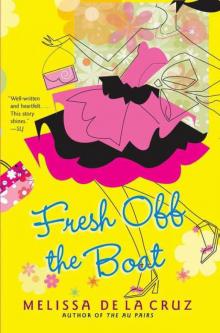 Fresh Off the Boat
Fresh Off the Boat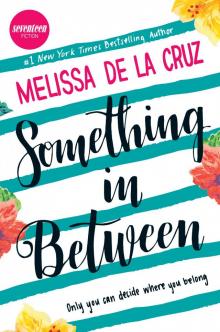 Something in Between
Something in Between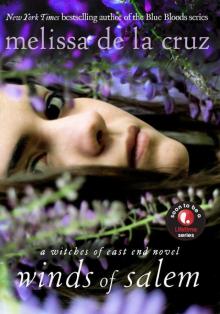 Winds of Salem
Winds of Salem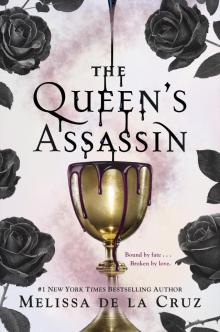 The Queen's Assassin
The Queen's Assassin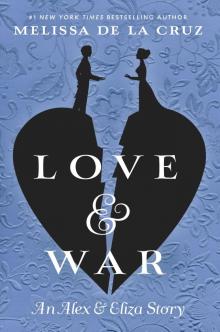 Love & War
Love & War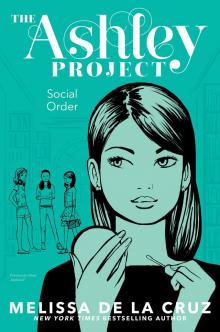 Social Order
Social Order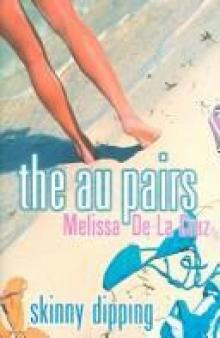 Skinny Dipping
Skinny Dipping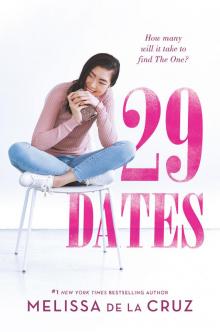 29 Dates
29 Dates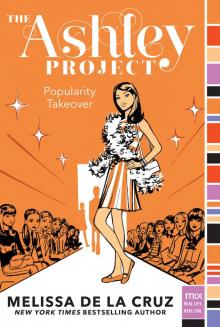 Popularity Takeover
Popularity Takeover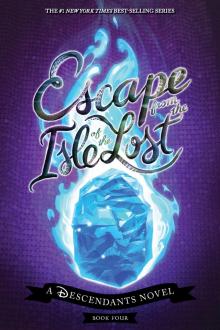 Escape from the Isle of the Lost
Escape from the Isle of the Lost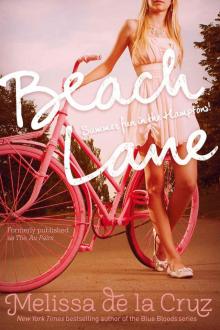 Beach Lane
Beach Lane Bloody Valentine
Bloody Valentine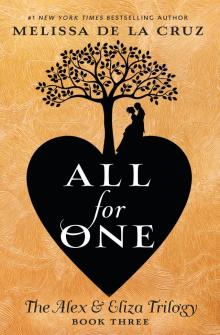 All for One
All for One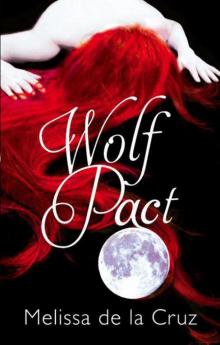 Wolf Pact: A Wolf Pact Novel
Wolf Pact: A Wolf Pact Novel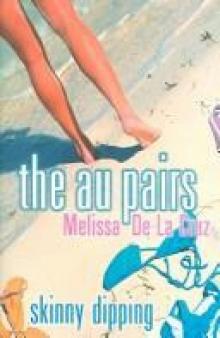 The au pairs skinny-dipping
The au pairs skinny-dipping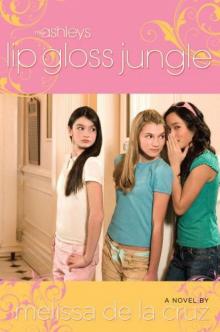 Lip Gloss Jungle (Ashleys)
Lip Gloss Jungle (Ashleys)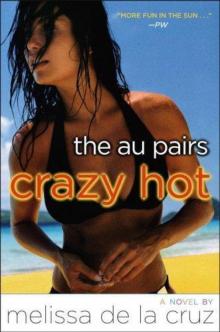 Crazy Hot (Au Pairs)
Crazy Hot (Au Pairs)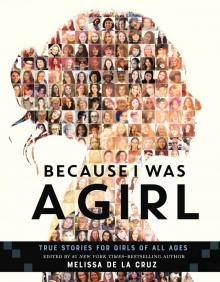 Because I Was a Girl
Because I Was a Girl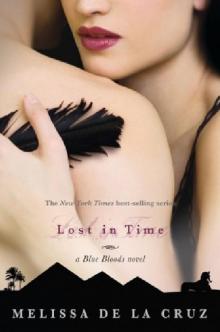 Blue Bloods 6 - Lost in Time
Blue Bloods 6 - Lost in Time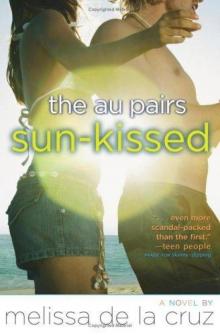 Sun-kissed (Au Pairs, The)
Sun-kissed (Au Pairs, The)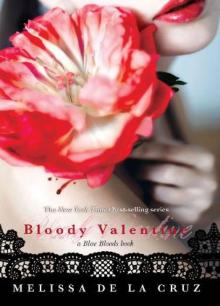 Bloody Valentine bb-6
Bloody Valentine bb-6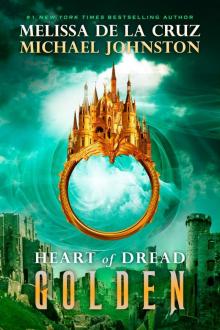 Golden
Golden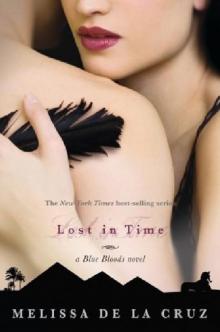 Lost in Time_A Blue Bloods Novella
Lost in Time_A Blue Bloods Novella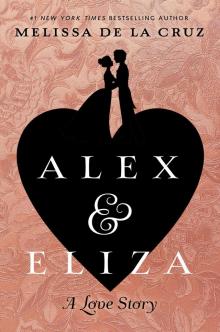 Alex and Eliza--A Love Story
Alex and Eliza--A Love Story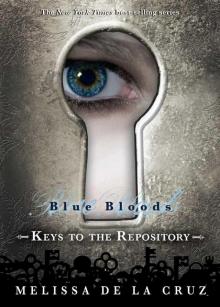 Blue Bloods: Keys to the Repository
Blue Bloods: Keys to the Repository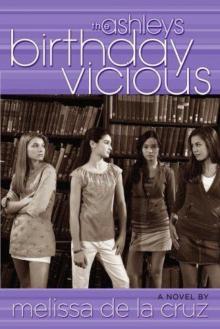 Birthday Vicious (The Ashleys, Book 3)
Birthday Vicious (The Ashleys, Book 3)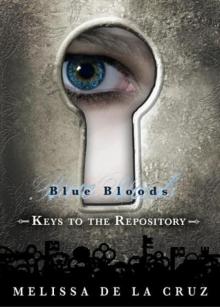 Keys to the Repository
Keys to the Repository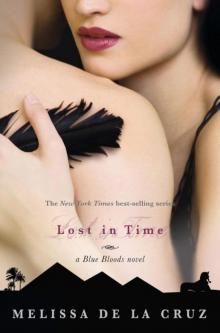 Lost In Time (Blue Bloods Novel)
Lost In Time (Blue Bloods Novel) Stolen
Stolen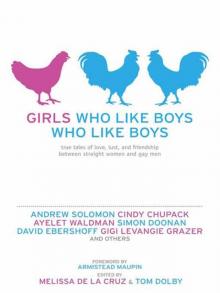 Girls Who Like Boys Who Like Boys
Girls Who Like Boys Who Like Boys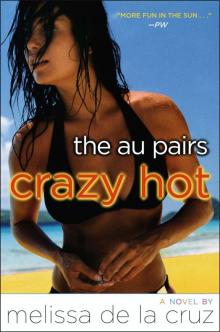 the au pairs crazy hot
the au pairs crazy hot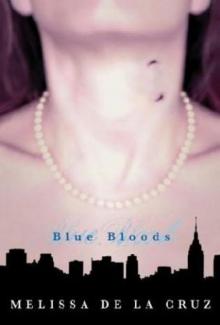 Blue Bloods bb-1
Blue Bloods bb-1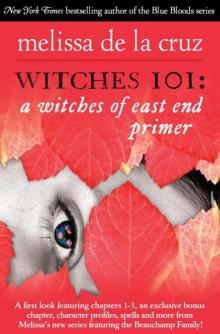 Witches 101
Witches 101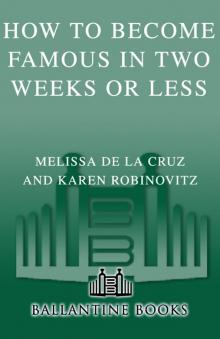 How to Become Famous in Two Weeks or Less
How to Become Famous in Two Weeks or Less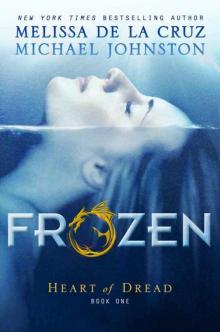 Frozen hod-1
Frozen hod-1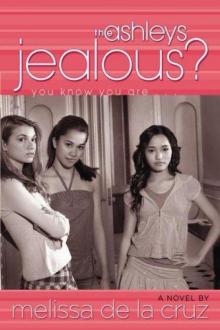 Jealous? (The Ashleys, Book 2)
Jealous? (The Ashleys, Book 2)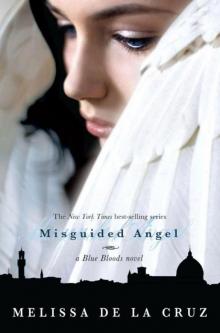 Misguided Angel (Blue Bloods)
Misguided Angel (Blue Bloods)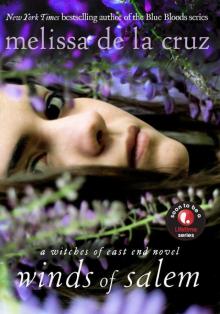 Winds of Salem: A Witches of East End Novel
Winds of Salem: A Witches of East End Novel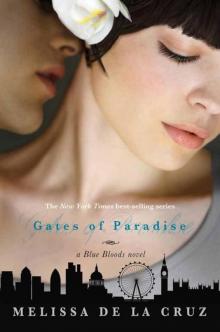 The Gates of Paradise
The Gates of Paradise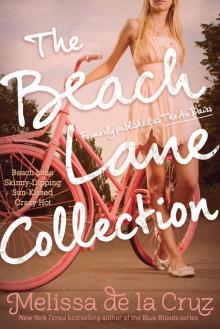 Beach Lane Collection
Beach Lane Collection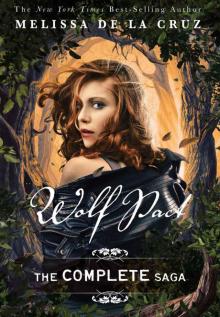 Wolf Pact, The Complete Saga
Wolf Pact, The Complete Saga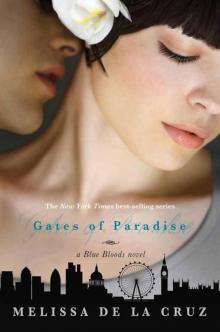 Gates of Paradise, The (Blue Bloods Novel)
Gates of Paradise, The (Blue Bloods Novel)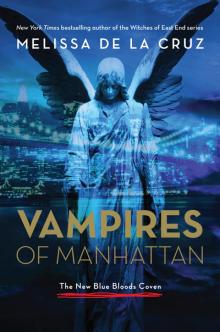 Vampires of Manhattan
Vampires of Manhattan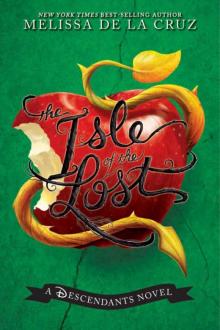 Isle of the Lost
Isle of the Lost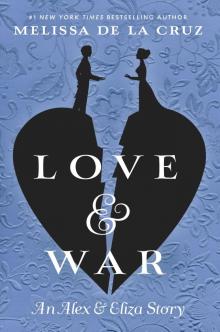 Love & War_An Alex & Eliza Story
Love & War_An Alex & Eliza Story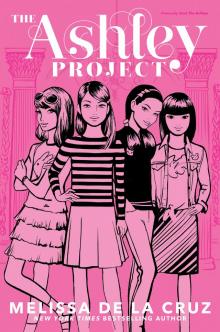 The Ashley Project
The Ashley Project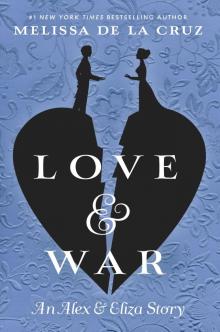 Love & War--An Alex & Eliza Story
Love & War--An Alex & Eliza Story